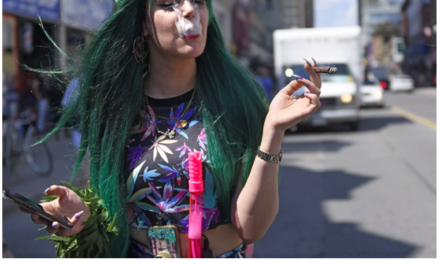The head of the World Health Organization (WHO) on Wednesday said the commitment announced by the United States administration to lift vaccine patent protections to help boost global supply, was a “monumental moment” in the battle to end the deadly pandemic.
WHO Director-General, Tedros Adhanom Ghebreyesus, described it on Twitter as a “powerful example of leadership to address global health challenges.”
The UN health chief has for months been urging governments involved in the World Trade Organization (WTO) negotiations over intellectual property rights, to suspend patent rules for those vaccines cleared for emergency use, in an effort to boost vaccine production.
The US had resisted lobbying to waive protections, but on Wednesday Katharine Tai, the US Trade Representative, released a detailed statement, outlining why the Biden Administration was changing its mind:
“This is a global health crisis, and the extraordinary circumstances of the COVID-19 pandemic call for extraordinary measures”, she said.
“The administration believes strongly in intellectual property protections, but in service of ending this pandemic, supports the waiver of those protections for COVID-19 vaccines. We will actively participate in text-based negotiations at the WTO, needed to make this happen.”
Safe and effective
She outlined that the aim was to get “as many safe and effective vaccines to as many people, as fast as possible.” The top trade official committed the US to expand manufacturing and distribution, and work to increase the raw materials needed to produce the vaccines.
According to news reports, WTO members are due to hold further discussions in the coming weeks, while India and South Africa – which proposed the waiver – are working on revised plans.
The issue of our time
Speaking before the US announcement, the WTO Director-General, Ngozi Okonjo-Iweala, said that the issue of equitable access to vaccines, diagnostics and therapeutics, was “both the moral and economic issue of our time.”
Addressing members at Wednesday’s meeting of the trade body, she said all members needed to share their vaccines, either through the international equitable mechanism, COVAX, or other means, and remove export restrictions and prohibitions.
Manufacturers needed to be expand capacity, and governments should “invest in additional manufacturing capacity for the future.”
She called on negotiations over the waiver to continue speedily, saying she was convinced a “pragmatic way forward” was possible.












